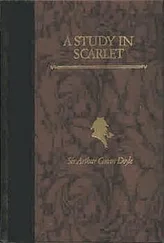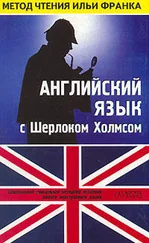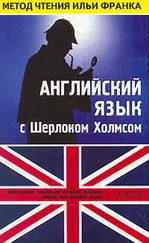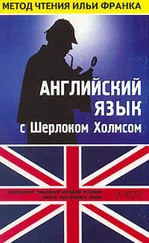He walked for a couple of miles through one ravine after another without success (он безуспешно пробродил пару миль по ущельям: «он шел на протяжении пары миль через одно ущелье за другим без успеха») , though from the marks upon the bark of the trees, and other indications (хотя по отметкам на коре деревьев и по другим признакам) , he judged that there were numerous bears in the vicinity (он заключил, что поблизости было много медведей; to judge — оценивать; делать вывод) . At last, after two or three hours' fruitless search (наконец, после двух или трех часов бесплодных поисков) , he was thinking of turning back in despair (он отчаялся и подумывал о возвращении: «он думал о том, чтобы повернуть назад в отчаянии») , when casting his eyes upwards he saw a sight which sent a thrill of pleasure through his heart (когда, посмотрев наверх, он увидел то, что заставило радостно забиться его сердце: «что послало трепет удовольствия через его сердце»; to cast — бросать; eye — глаз; to cast an eye — бросить взгляд; sight — вид; зрелище) . On the edge of a jutting pinnacle (на краю выступающей скалы; pinnacle — вершина, пик) , three or four hundred feet above him (в трехстах или четырехстах футах над ним) , there stood a creature somewhat resembling a sheep in appearance (стояло существо, по внешнему виду несколько напоминающее овцу) , but armed with a pair of gigantic horns (но увенчанное: «вооруженное» парой гигантских рогов) . The big-horn — for so it is called (снежный баран: «большой рог», ибо так его называют) — was acting, probably, as a guardian over a flock (вероятно, был стражем стада: «действовал, вероятно, в качестве стража стада») which were invisible to the hunter (которое было скрыто от охотника: «невидимо охотнику») ; but fortunately it was heading in the opposite direction (но, к счастью, баран смотрел в противоположном направлении; to head — направлять) , and had not perceived him (и его не заметил) . Lying on his face, he rested his rifle upon a rock (улегшись плашмя, он пристроил винтовку на скале; to rest — класть, прислонять) , and took a long and steady aim before drawing the trigger (и долго и тщательно целился, прежде чем нажать на курок; aim — прицел; мишень; to take aim — целиться; steady — устойчивый; верный; надежный) . The animal sprang into the air (животное подпрыгнуло: « подпрыгнуло в воздух») , tottered for a moment upon the edge of the precipice (зашаталось на мгновение на краю пропасти; to totter — шататься; угрожать падением) , and then came crashing down into the valley beneath (а затем рухнуло вниз, в долину) .
success [s@k'ses], gigantic [dZI'g&ntIk], precipice ['presIpIs]
He walked for a couple of miles through one ravine after another without success, though from the marks upon the bark of the trees, and other indications, he judged that there were numerous bears in the vicinity. At last, after two or three hours' fruitless search, he was thinking of turning back in despair, when casting his eyes upwards he saw a sight which sent a thrill of pleasure through his heart. On the edge of a jutting pinnacle, three or four hundred feet above him, there stood a creature somewhat resembling a sheep in appearance, but armed with a pair of gigantic horns. The big-horn — for so it is called — was acting, probably, as a guardian over a flock which were invisible to the hunter; but fortunately it was heading in the opposite direction, and had not perceived him. Lying on his face, he rested his rifle upon a rock, and took a long and steady aim before drawing the trigger. The animal sprang into the air, tottered for a moment upon the edge of the precipice, and then came crashing down into the valley beneath.
The creature was too unwieldy to lift (баран был слишком тяжел, чтобы унести его целиком: «существо было слишком громоздким, чтобы поднять»; unwieldy — большой, громоздкий, объемистый) , so the hunter contented himself with cutting away one haunch and part of the flank (поэтому охотник удовлетворился тем, что отрезал заднюю ногу и часть бока; haunch — нога и филейная часть животного; flank — бок; бочок) . With this trophy over his shoulder, he hastened to retrace his steps (с этим трофеем на плече он поспешил в обратный путь: «вернуться по своим шагам»; to retrace — проходить обратно по пройденному пути) , for the evening was already drawing in (так как уже наступал вечер) . He had hardly started, however, before he realized the difficulty which faced him (но, едва стартовав, он осознал трудность, стоявшую перед ним) . In his eagerness he had wandered far past the ravines which were known to him (в своем стремлении /добыть пищу/ он забрел далеко за пределы известных ему ущелий; eagerness — пыл, рвение, старание; eager — страстно желающий, жаждущий) , and it was no easy matter to pick out the path which he had taken (и нелегко было: «было нелегким делом» найти тот путь, которым он сюда пришел: «ту тропу, которую он взял»; to pick out — выбирать; отличать, различать) . The valley in which he found himself divided and sub-divided into many gorges (долина, в которой он оказался, распадалась на множество ветвящихся дальше ущелий; to divide — разделяться, разветвляться; to sub-divide — последовательно делиться, подразделяться; gorge — узкое ущелье, теснина) , which were so like each other that it was impossible to distinguish one from the other (которые так походили друг на друга, что отличить их друг от друга было невозможно) . He followed one for a mile or more until he came to a mountain torrent (он милю или больше следовал одним из них, пока не добрался до горного потока) which he was sure that he had never seen before (который, он был уверен, он никогда раньше не видел) . Convinced that he had taken the wrong turn (убежденный, что он свернул не туда: «взял неправильный поворот») , he tried another, but with the same result (он пошел по другому ущелью: «попробовал другое», но с тем же результатом) . Night was coming on rapidly (быстро приближалась ночь) , and it was almost dark before he at last found himself in a defile which was familiar to him (и было почти темно, когда он наконец оказался в знакомом ему ущелье; defile — узкое ущелье, теснина) . Even then it was no easy matter to keep to the right track (и даже теперь нелегко было придерживаться правильного пути) , for the moon had not yet risen (так как луна еще не взошла) , and the high cliffs on either side made the obscurity more profound (а высокие утесы с обеих сторон делали темноту еще более глубокой) . Weighed down with his burden (сгибаясь под тяжестью ноши; to weigh down — отягощать, пригибать; нагружать) , and weary from his exertions (измученный своими блужданиями; exertion — напряжение, усилие) , he stumbled along (он, спотыкаясь, шел вперед; to stumble — запинаться) , keeping up his heart by the reflection that every step brought him nearer to Lucy (поддерживая себя: «поддерживая свое сердце» мыслью, что каждый шаг приводил: «приносил» его ближе к Люси) , and that he carried with him enough to ensure them food for the remainder of their journey (и что он нес на себе: «с собой» достаточно пищи, чтобы им хватило до конца их путешествия; to ensure — гарантировать, обеспечивать; sure — надежный; уверенный; remainder — остаток; оставшаяся часть) .
Читать дальше









